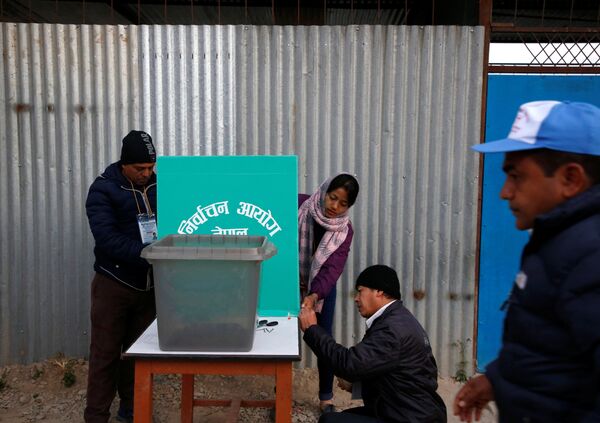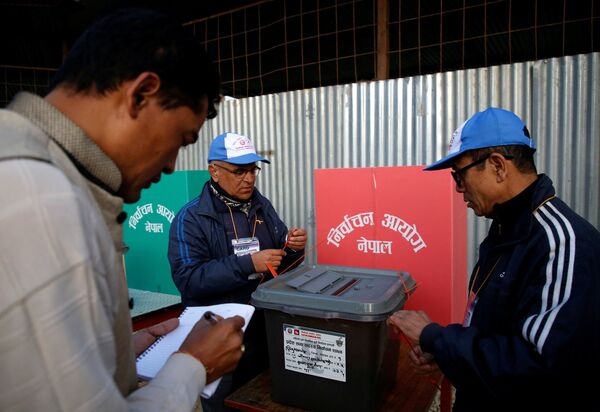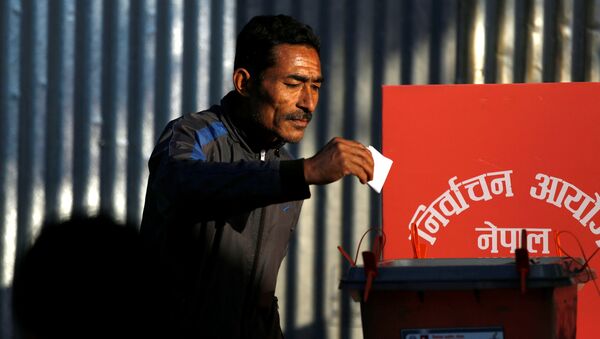It is the first parliamentary election in post-war republican Nepal, after 2006 marked the end of a civil war between Maoists and security forces, as the parliament stripped the Nepali king of immunity and the right to a veto as well as obliged him to pay taxes. After two years, the specially set-up assembly voted to crush the 239-year-old monarchy, formerly believed to be "Vishnu’s embodiment on Earth" and turned Nepal into a secular federal republic.
Though over a decade has passed since then, sporadic violence is still reported around the country. Many are pinning their hopes on this year’s parliamentary vote to put an end to the ongoing hostilities and lead it to a better-balanced society.

An alliance of the Unified Marxist-Leninists (UML) with the Maoists is the closest rival to the ruling Nepali Congress in the vote, in which around 3.2 million people across the north of the country are expected to participate, including the areas devastated by a severe earthquake in 2015.
"We need roads, water supply, electricity, health care and jobs so our children are not forced to go abroad to work," 49-year-old Rita Shrestha from the tremor-hit area told Reuters after putting her ballot in the box.

The more populous southern parts of Nepal will cast their votes on December 7.
Nepal has a two-chamber parliament, with 275 seats in the House of Representatives up for election. The latter will appoint Nepal’s Prime Minister in the foreseeable future.
READ MORE: Broadening Horizons: Nepal Cozies up to China


